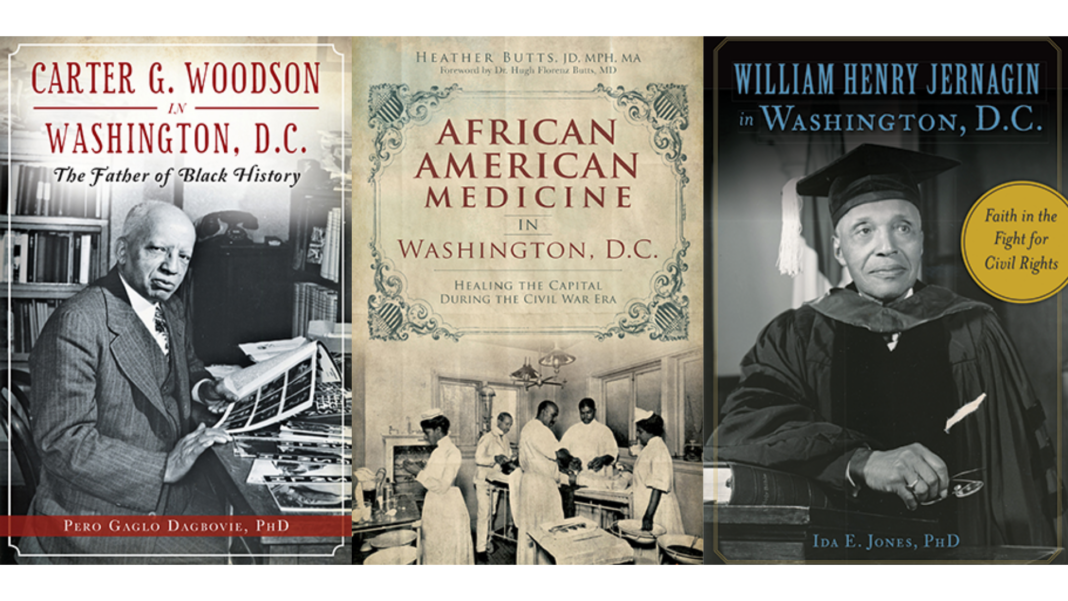
As the nation’s capital once again becomes a center of protest during a time of national crisis, it can be an apt moment to reflect upon Washington’s own immense African American history and past civil rights achievements. One of our editors offers three book recommendations to begin your exploration of this history.
Though these titles are just a handful of stories among the vast history of African American culture and civil rights in Washington, they offer a chance for readers to learn about where we’ve been, and perhaps gain some lessons for how to move forward.
Carter G. Woodson in Washington, D.C.: The Father of Black History
The discipline of African American history itself has its roots firmly planted in Northwest, D.C. In a Victorian row house on “Black Broadway,” Carter G. Woodson established the headquarters of the Association for the Study of Negro Life and History (ASNLH) and dedicated his entire life to sustaining the early black history “mass education movement.” In Carter G. Woodson in Washington, D.C.: The Father of Black History, author Pero Gaglo Dagbovie, PhD reveals Woodson’s vital importance to the creation of African American history as a field of study and the role his home played in both the Shaw neighborhood and the District.
William Henry Jernagin in Washington, D.C.: Faith in the Fight for Civil Rights
As the senior pastor of the Mount Carmel Baptist Church in the Mount Vernon Square neighborhood for more than forty-five years, William Henry Jernagin was a foundational leader in the American civil rights movement. His work helped to abolish Jim Crow laws in the city as he rose to leading positions in the National Baptist Convention and National Fraternal Council of Negro Churches. Through his office he also was an early mentor and inspiration for a young Martin Luther King, Jr. Ida E. Jones, PhD tells his captivating life story in “William Henry Jernagin in Washington, D.C.: Faith in the Fight for Civil Rights.”
African American Medicine in Washington, D.C.: Healing the Capital During the Civil War Era
At the outbreak of the Civil War and the enlistment of new African American troops, the need for African American nurses, doctors and surgeons to heal those soldiers arose through a segregated medical establishment. Washington became the center of Union military medical treatment as brave healthcare workers created a medical infrastructure for African Americans by African Americans. The most prominent African American surgeon, Alexander T. Augusta fought discrimination, visited President Lincoln and testified before Congress as Washington’s Freedmen’s Hospital was formed to serve the District’s growing free African American population, eventually becoming the Howard University Medical Center. In “African American Medicine in Washington, D.C.: Healing the Capital During the Civil War Era,” author Heather M. Butts, JD MPH MA charts the robust history of the origins of African American medicine in Washington, D.C.
READ MORE: Civil Rights & Social Justice History

